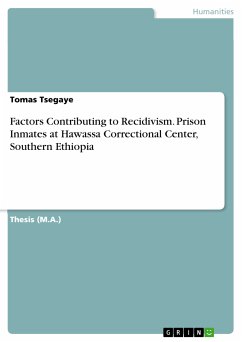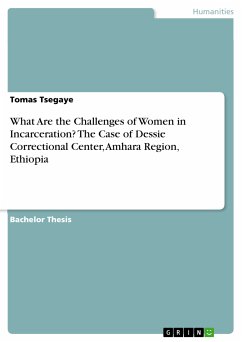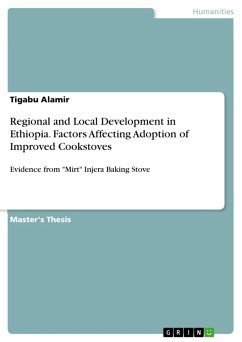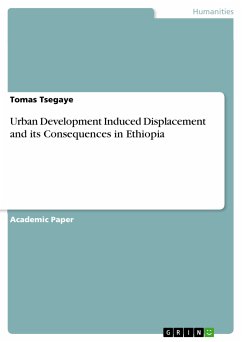Thesis (M.A.) from the year 2022 in the subject Sociology - Law and Delinquency, grade: 1, Wollo University (Social science and humanities), course: Criminology, language: English, abstract: Nowadays, the issue of crime in general and recidivistic behavior in particular, has become a great problem in Ethiopia. Every crime has social and economic costs for both society and the individuals, but most importantly recidivism creates fear and insecurity among the society along with continuous loss of property and life, plus it escalates expenditures on law enforcement and criminal justice. However, recidivism and its factors are not adequately understood in Ethiopia. Hence, this study tried to examine the factors that contribute to recidivism, with particular emphasis on prison inmates at Hawassa correctional center. A mixed research approach and cross-sectional study design were employed. The quantitative data was collected from all recidivists (80) selected through comprehensive sampling. On the other hand, qualitative data was gathered from seventy purposively selected participants using key informant interviews, semi-structured interviews, and case studies. The quantitative data were analyzed using both descriptive and inferential statistical techniques while the qualitative data were analyzed using thematic analysis.
Dieser Download kann aus rechtlichen Gründen nur mit Rechnungsadresse in A, B, BG, CY, CZ, D, DK, EW, E, FIN, F, GR, HR, H, IRL, I, LT, L, LR, M, NL, PL, P, R, S, SLO, SK ausgeliefert werden.









